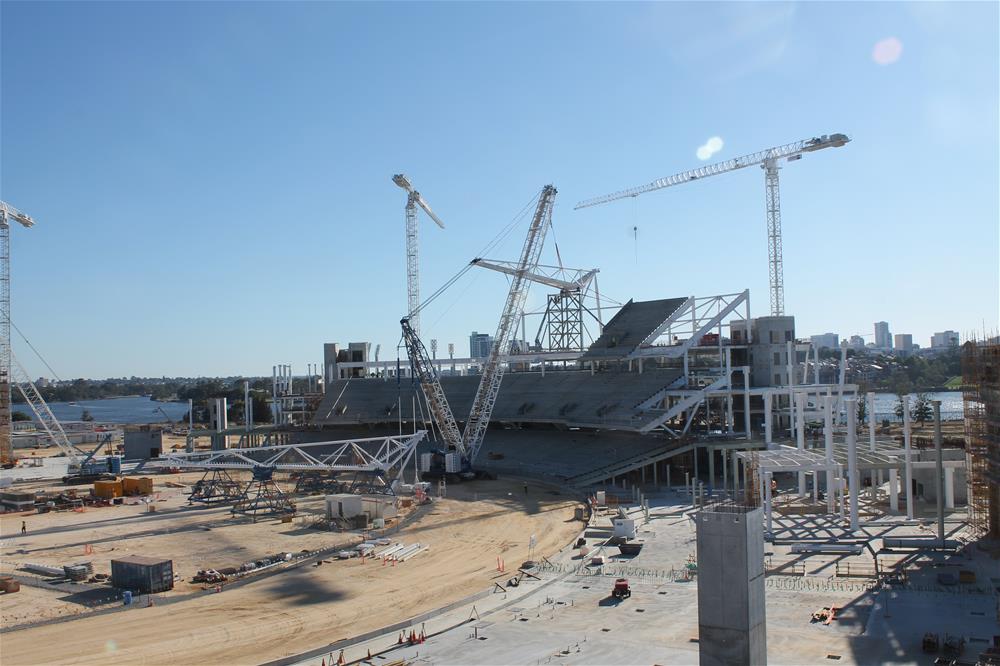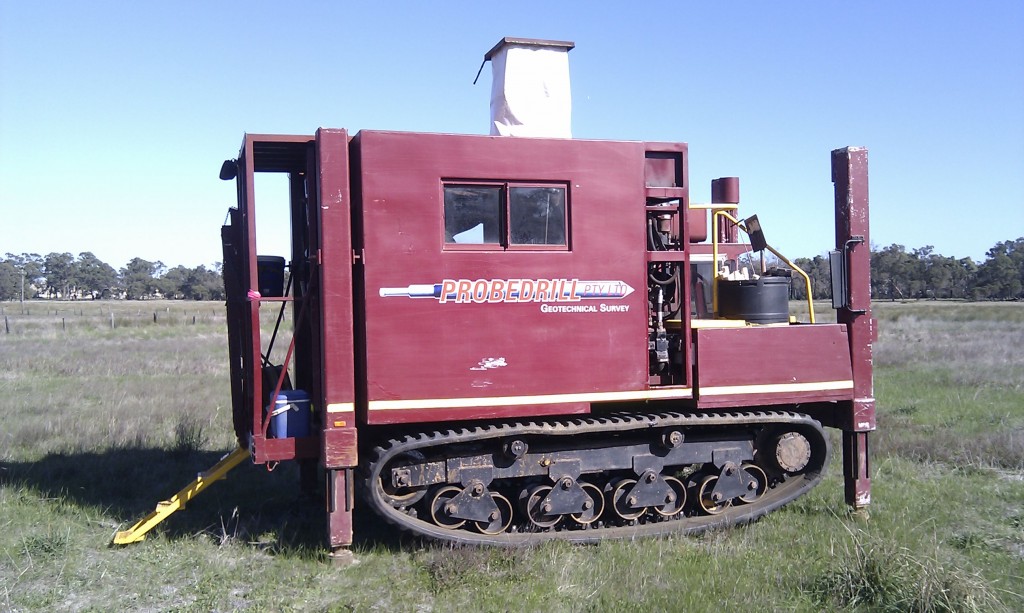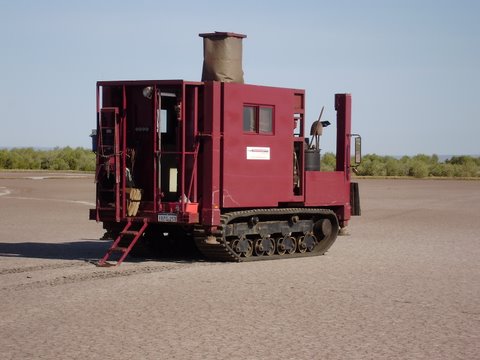A Dilatometer Test (DMT) consists of pushing flat blade into the soil, to a desired depth using a CPT rig.
Once the test depth is reached, a circular steel membrane located on one side of the blade is expanded horizontally into the soil, the operator records two pressures (Pressures A & B). An optional third pressure reading (Pressure C) is also available.
Pressure A is the pressure on the blade before expansion, while Pressure B is the pressure required to produce an expansion of 1mm of the membrane into the soil. The operator then deflates the membrane and records a third pressure (Pressure C). The Pressure C test requires about 1-2 minutes and the blade is then advanced to the next test depth.
Graphs are produced which show Dilatometer Modulas (ED), Constrained Modulas (M), Material Index (Clay, Silt, Sand), Horizontal Stress (KD), Undrained Sheer Strength (Su), and Corrected C readings (P2) (if C readings are taken).
The Dilatometer is particularly sensitive and therefore useful to evaluate such factors as stress state/history, aging, cementation, and structure.
DMT testing is mainly used to accurately predict settlement of shallow foundations, both in sands and clays, and to determine the undrained shear strength in clay. It can also be used to determine slip surfaces in slopes & resistivity to liquefaction.
For more information on DMT testing download this file, or visit www.marchetti-dmt.it.





